
Juliane "Liane" Haid was an Austrian actress and singer. She has often been referred to as Austria's first movie star.
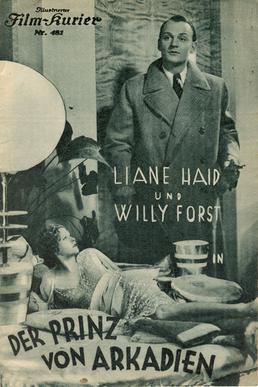
The Prince of Arcadia is a 1932 Austrian-German romance film directed by Karl Hartl and starring Willi Forst, Liane Haid and Hedwig Bleibtreu. It was shot at the Sievering Studios of Sascha Film in Vienna with sets designed by the art director Hans Ledersteger. Location filming took place at Ragusa in Sicily. It premiered on 18 May 1932.

Radio Magic is a 1927 German silent comedy film directed by Richard Oswald and starring Werner Krauss, Xenia Desni, and Fern Andra. The film's art direction was by Gustav A. Knauer and Willy Schiller. It premiered on 30 September 1927. The runtime is 60 minutes.

Marie's Soldier is a 1927 German silent drama film directed by Erich Schönfelder and starring Xenia Desni, Harry Liedtke and Grit Haid. It was shot at the Johannisthal Studios and the backlot of the Babelsberg Studios in Berlin. The film's art direction was by Kurt Richter. The film is based on Leo Ascher's 1913 operetta of the same name.
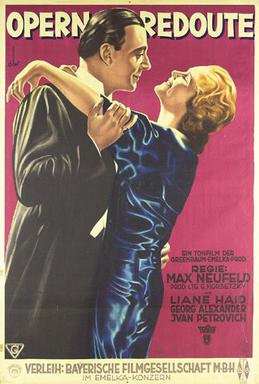
The Opera Ball is a 1931 German musical comedy film directed by Max Neufeld and starring Iván Petrovich, Liane Haid and Georg Alexander. It was shot at the Halensee Studios in Berlin. The film's sets were designed by the art directors Karl Weber and Erich Zander. It was part of a large group of operetta films made during the decade, although he film is not based on the operetta Der Opernball. The following year it was remade in French as Beauty Spot. A 1932 British remake After the Ball was also made.

Three Waiting Maids is a 1925 German silent comedy film directed by Carl Boese and starring Hanni Weisse, Maly Delschaft, and Bruno Kastner. It was remade in 1932 as Mrs. Lehmann's Daughters and the 1933 Swedish film Marriageable Daughters.

Nanon is a 1924 German silent historical film directed by Hanns Schwarz and starring Agnes Esterhazy, Harry Liedtke, and Hanni Weisse. It is based on the operetta Nanon by Richard Genée with a libretto by F Zell. The film's sets were designed by the Hungarian art director Stefan Lhotka. The film was remade in 1938 as a sound film of the same name.
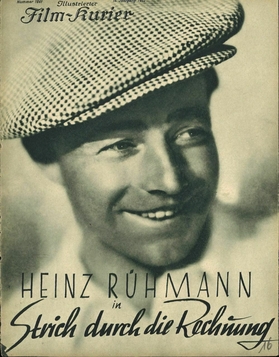
Spoiling the Game is a 1932 German comedy film directed by Alfred Zeisler and starring Heinz Rühmann, Toni van Eyck, and Hermann Speelmans. Its hero is a young cyclist who enters a race.

The Sandwich Girl is a 1933 German comedy film directed by Carl Boese and starring Lucie Englisch, Jakob Tiedtke, and Else Reval.

Gretel Wins First Prize is a 1933 German comedy film directed by Carl Boese and starring Lucie Englisch, Leopold von Ledebur and Jakob Tiedtke. It was shot at the Babelsberg Studios in Berlin. The film's sets were designed by the art director Willi Herrmann.

The Blue of Heaven is a 1932 German musical film directed by Victor Janson and starring Mártha Eggerth, Hermann Thimig, and Fritz Kampers. It was shot at the Tempelhof Studios in Berlin. The film's sets were designed by the art director Jacek Rotmil. It is set partly on the Berlin U-Bahn system.
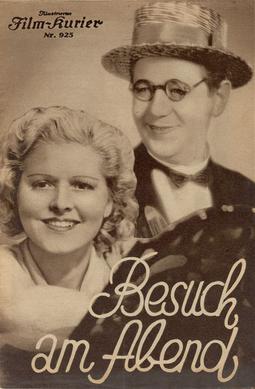
An Evening Visit is a 1934 German comedy film directed by Georg Jacoby and starring Liane Haid, Paul Hörbiger and Harald Paulsen.
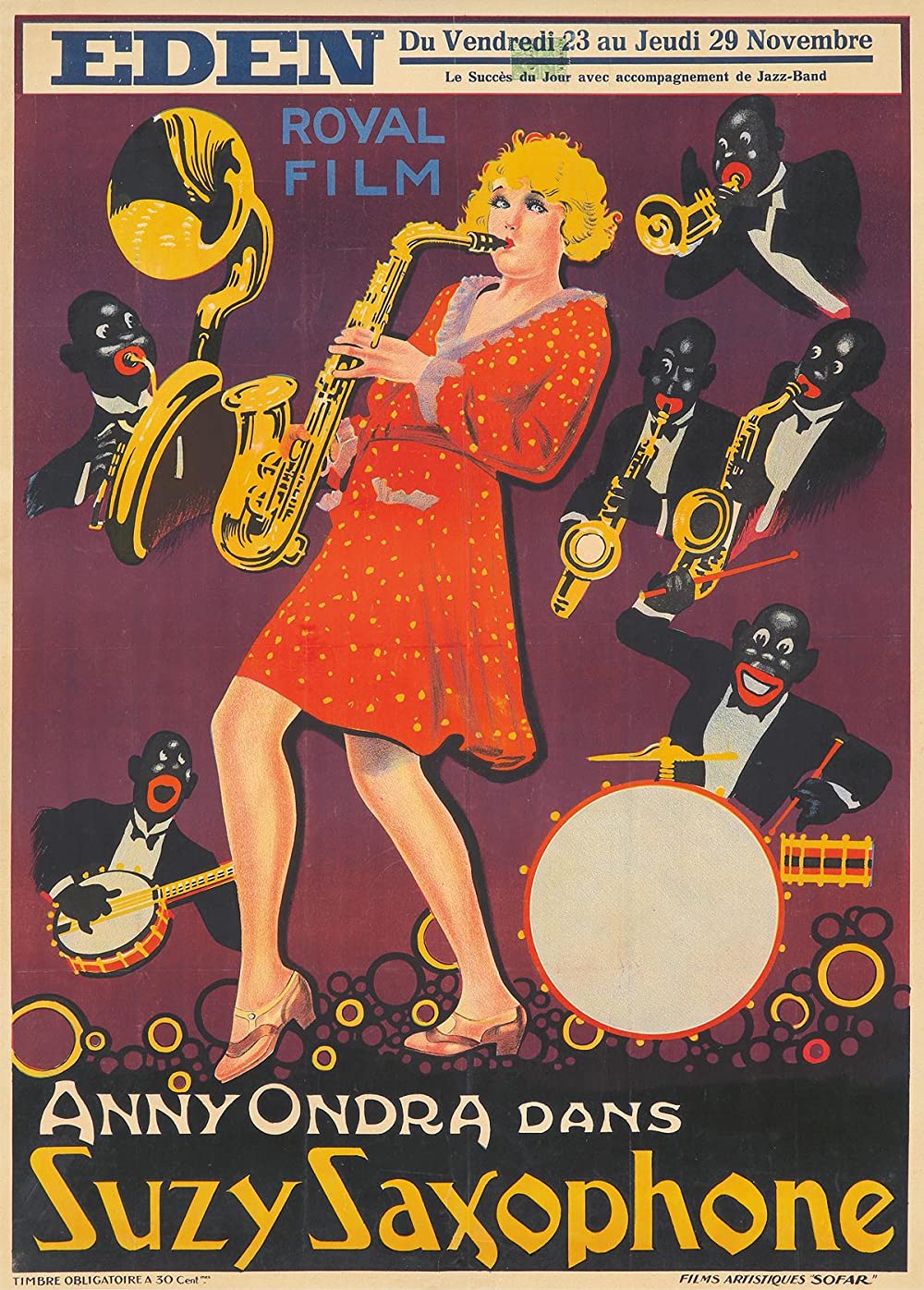
Suzy Saxophone or Saxophone Suzy is a 1928 French-German silent comedy film directed by Karel Lamač and starring Anny Ondra and Hans Albers. It was shot at the Johannisthal Studios in Berlin. The film's art direction was by Carl Ludwig Kirmse.

Carnival Magic is a 1927 German silent drama film directed by Rudolf Walther-Fein and Rudolf Dworsky and starring Harry Liedtke, Grete Mosheim, and Emil Rameau. It was shot at the Staaken Studios in Berlin. The film's sets were designed by the art directors Hans Minzloff and Jacek Rotmil.
Grock is a 1931 German drama film directed by Carl Boese and starring Grock, Liane Haid, and Betty Bird. Grock, a famous circus performer, appears as himself.
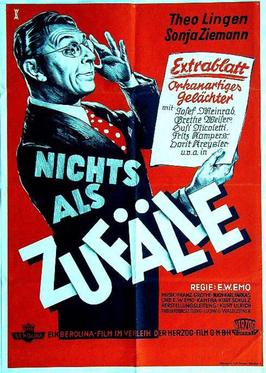
Nothing But Coincidence is a 1949 West German comedy film directed by E. W. Emo and starring Theo Lingen, Sonja Ziemann, and Josef Meinrad. It was shot at the Göttingen Studios in northern Germany. The film's sets were designed by the art directors Hans Ledersteger and Ernst Richter.
Money in the Streets is a 1922 Austrian-German silent drama film directed by Reinhold Schünzel and starring Liane Haid, Liesl Stillmark and Max Ralph-Ostermann.

The Story of a Maid is a 1921 Austrian-German silent drama film directed by Reinhold Schünzel and starring Liane Haid, Otto Tressler and Erika Glässner. It premiered at the Marmorhaus in Berlin.
Playing with Destiny is a 1924 German silent film directed by Siegfried Philippi and starring Alfred Abel, Sascha Gura and Claire Rommer.

Her Highness the Saleswoman is a 1933 German comedy film directed by Karl Hartl and starring Liane Haid, Willi Forst and Paul Kemp. The film is based on the play My Sister and I by Georges Berr and Louis Verneuil. It was shot at the Babelsberg Studios in Potsdam. Location shooting took place around Lake Constance and Lindau in Bavaria. The film's sets were designed by the art director Werner Schlichting. It premiered in Hamburg and first appeared in Berlin at the city's Gloria-Palast. A separate French-language version The Princess's Whim was also produced.

















